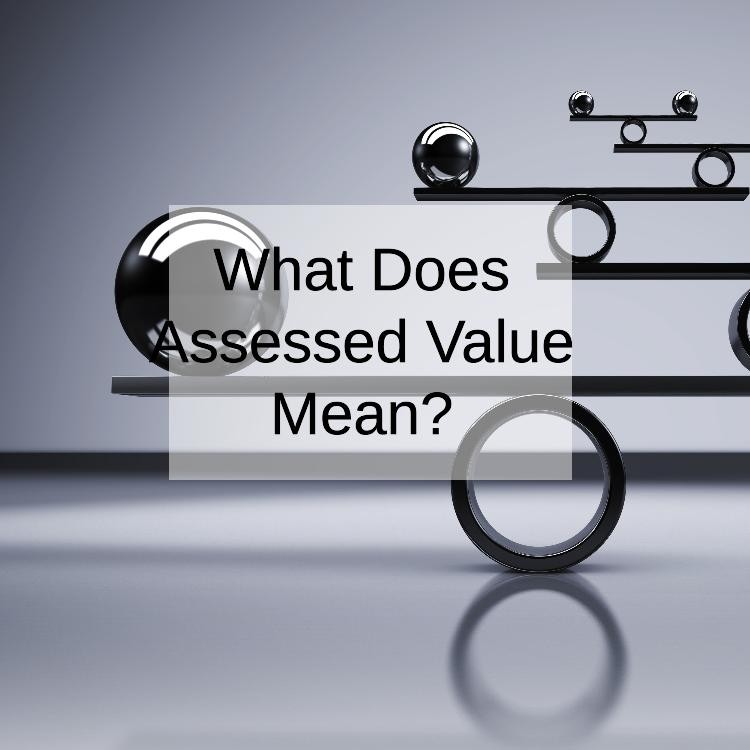Understanding the concept of assessed value is crucial for homeowners, property buyers, and real estate investors alike. The assessed value of a property plays a significant role in property taxation, mortgage loan lending, and real estate valuation. In this comprehensive discussion, we will delve into the meaning of assessed value, the methods used to determine it, factors influencing assessed value, and its implications for property owners and the real estate market.
What is Assessed Value?
The assessed value of a property is an estimation of its worth for property taxation purposes. It represents the value assigned to a property by a local government's tax assessor or appraisal district. The assessed value serves as the basis for calculating property taxes levied on the first time home owners loan. Unlike market value, which reflects the price a property would sell for in the open market, the assessed value is used primarily for tax assessment purposes and may not always align with market trends or actual selling prices.
How Is Assessed Value Determined?
The process of determining the assessed value varies depending on the jurisdiction and the guidelines established by local tax authorities. However, several common methods and factors are typically considered in assessing the value of a property:
Property Appraisal: Tax assessors may conduct property appraisals to assess its value. Appraisers evaluate various factors, including the property's size, location, condition, amenities, and comparable sales data, to determine its assessed value.
Market Analysis: Tax assessors may analyze recent sales data of similar properties in the area to determine the assessed value. Comparable sales, also known as "comps," play a crucial role in estimating the value of a property based on market trends and conditions.
Cost Approach: The cost approach estimates the assessed value by calculating the cost of replacing the property with a similar one. This method considers the property's age, depreciation, construction quality, and replacement cost to determine its assessed value.
Income Approach: The income approach is commonly used for assessing the value of income-producing properties, such as rental properties or commercial buildings. This method considers the property's potential income, expenses, and capitalization rate to estimate its assessed value.
Factors Influencing Assessed Value
Several factors can influence the assessed value of a property, including:
Location: The location of the property, including its proximity to amenities, schools, parks, transportation, and employment centers, can impact its assessed value.
Property Characteristics: The size, age, condition, construction quality, and features of the property can influence its assessed value. Properties with desirable features, such as updated kitchens, bathrooms, and amenities, may have higher assessed values.
Market Conditions: Market trends, supply and demand dynamics, and economic conditions can affect the assessed value of properties in a given area. Changes in the real estate market, such as fluctuations in property values or sales activity, can impact assessed values.
Property Improvements: Renovations, additions, and improvements made to the property can increase its assessed value. Assessors may reassess the property's value following significant improvements or alterations.
Assessment Methods: The methods used by tax assessors to determine assessed values can vary, resulting in differences in assessed values among properties in the same area.
Implications of Assessed Value for Property Owners
Understanding the assessed value of a property is essential for property owners due to its implications for property taxation and real estate investment. Here are some key implications of assessed value for property owners:
Property Taxation: The assessed value of a property serves as the basis for calculating property taxes levied by local governments. Property owners are responsible for paying property taxes based on the assessed value of their properties.
Budgeting and Financial Planning: Property owners should consider property taxes when budgeting and planning their finances. Changes in assessed values or property tax rates can impact homeowners' financial obligations and affordability.
Home Equity and Mortgage Lending: The assessed value of a property can influence its equity and mortgage lending opportunities. Higher assessed values may increase a property's equity, enabling homeowners to access home equity loans or lines of credit for various purposes.
Real Estate Investment: Investors and developers consider assessed values when evaluating potential real estate investments. Understanding the assessed values of properties in target markets can help investors assess investment opportunities, determine potential returns, and mitigate risks.
Challenges and Controversies Surrounding Assessed Value
While assessed value serves as a critical component of property taxation and real estate valuation, it is not without its challenges and controversies. Some common challenges and controversies surrounding assessed value include:
Accuracy and Consistency: Assessors may face challenges in accurately and consistently assessing the value of properties, leading to discrepancies and disparities among similar properties.
Assessment Appeals: Property owners have the right to appeal their property assessments if they believe they are inaccurate or unfair. Assessment appeals processes vary by jurisdiction but typically involve submitting evidence to support the property owner's claim.
Market Fluctuations: Assessors may struggle to keep pace with rapidly changing market conditions, leading to lagging or outdated assessed values that do not reflect current market trends.
Perception of Fairness: Property owners may perceive assessed values as unfair or arbitrary, especially if they believe their assessments are higher than the actual market value of their properties.
The assessed value of a property is a critical component of property taxation, mortgage loan lenders, and real estate investment. It represents the value assigned to a property by tax assessors for taxation purposes and is influenced by various factors, including property characteristics, market conditions, and assessment methods. Property owners should understand the assessed value of their properties and its implications for property taxation, financial planning, and real estate investment. While assessed value is subject to challenges and controversies, it remains a fundamental aspect of the real estate market and plays a significant role in property valuation and taxation. By understanding how assessed values are determined and the factors influencing them, property owners can make informed decisions regarding their properties and financial strategies.
FAQ for "What Does Assessed Value Mean And How Is It Determined?"
Q. What is assessed value and how does it differ from market value?
Assessed value is an estimation of a property's worth for taxation purposes, determined by local government assessors. Market value, on the other hand, reflects the price a property would sell for in the open market.
Q. How do tax assessors determine the assessed value of a property?
Tax assessors determine assessed values through methods such as property appraisals, market analysis, cost approaches, and income approaches. These methods consider factors like property size, location, condition, and comparable sales data.
Q. What factors influence the assessed value of a property?
Several factors influence assessed values, including location, property characteristics, market conditions, property improvements, and assessment methods used by tax assessors.
Q. How does assessed value impact property taxation?
Assessed value serves as the basis for calculating property taxes levied on property owners. Higher assessed values typically result in higher property tax obligations, while lower assessed values lead to lower tax liabilities.
Q. Can property owners appeal their assessed values if they believe they are inaccurate?
Yes, property owners have the right to appeal their assessed values if they believe they are inaccurate or unfair. Assessment appeals processes vary by jurisdiction and typically involve submitting evidence to support the property owner's claim.
Q. How does assessed value affect home equity and mortgage lending?
Higher assessed values can increase a property's equity, enabling homeowners to access home equity loan vs lines of credit. Additionally, assessed values may influence mortgage lending decisions and loan-to-value ratios.
Q. What challenges and controversies surround assessed value?
Challenges include accuracy and consistency in assessments, market fluctuations, assessment appeals, and the perception of fairness among property owners.
Q. Is assessed value always reflective of a property's true market value?
Not necessarily. Assessed value is primarily used for taxation purposes and may not always align with a property's true market value due to differences in assessment methods, market conditions, and other factors.
Q. How can property owners use knowledge of assessed value to make informed decisions?
Understanding assessed value can help property owners budget for property taxes, evaluate real estate investments, and navigate assessment appeals processes. It also provides insight into local market trends and property values.
Q. What role does assessed value play in real estate investment and development?
Assessed value influences real estate investment decisions by providing investors with insights into property values and potential returns. Developers also consider assessed values when evaluating development opportunities and assessing property tax implications.














